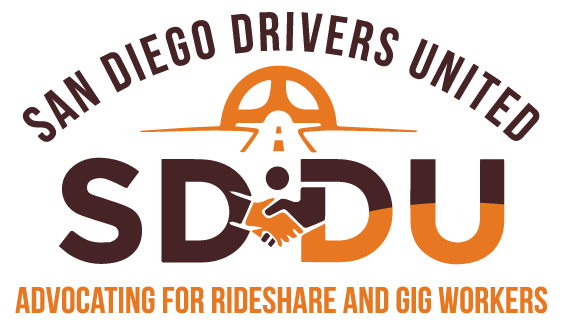Empowering Rideshare Drivers: The Case for Fare Negotiation in San Diego
As a rideshare driver in San Diego, you’re likely no stranger to the challenges of navigating the city’s busy streets and dealing with fluctuating demand. But have you ever wished you had more control over your earnings? With the rise of rideshare services, drivers like you are advocating for change. One potential solution gaining traction is fare negotiation.
The Current State of Rideshare in San Diego
San Diego’s rideshare industry is booming, with thousands of drivers hitting the roads every day. However, many drivers feel that the current system doesn’t provide them with fair compensation or flexibility. The algorithm-driven pricing model used by rideshare companies can lead to unpredictable earnings, making it difficult for drivers to plan their finances.
The Benefits of Fare Negotiation
Fare negotiation could be a game-changer for rideshare drivers in San Diego. By allowing drivers to negotiate fares with riders, we can create a more equitable system that benefits both parties. Here are some potential benefits:
-
- Increased earnings: Drivers can earn more by negotiating higher fares, especially during peak hours or in high-demand areas.
- Improved flexibility: Drivers can choose which rides to accept and negotiate fares based on their own needs and preferences.
- Better rider-driver relationships: Negotiation can lead to more transparent and mutually beneficial agreements, improving the overall ride experience.
How Fare Negotiation Could Work
Implementing fare negotiation would require some changes to the current rideshare system. Here’s a possible scenario:
• Driver-initiated negotiation: Drivers could initiate negotiations with riders, proposing a fare range or a specific fare.
• Rider acceptance: Riders could accept the proposed fare or counteroffer, leading to a mutually agreed-upon price.
• Algorithmic support: Rideshare companies could provide algorithms that suggest fare ranges or minimum fares, ensuring drivers earn a fair income.
Regulatory Framework
To make fare negotiation a reality, regulatory changes would be necessary. The City of San Diego and state authorities would need to revisit existing laws and regulations governing rideshare services. This could involve:
• Revising labor laws: Updating laws to reflect the changing nature of work in the gig economy.
• Establishing guidelines: Creating guidelines for fare negotiation, ensuring fairness and transparency
Challenges and Opportunities
While fare negotiation offers many benefits, there are also challenges to consider:
• Complexity: Implementing fare negotiation would require significant changes to the rideshare system.
• Fairness: Ensuring fairness and transparency in fare negotiation would be crucial to avoid disputes.
Despite these challenges, fare negotiation presents an opportunity for rideshare drivers in San Diego to take control of their earnings and create a more sustainable industry.
Conclusion
Fare negotiation has the potential to revolutionize the rideshare industry in San Diego. By empowering drivers to negotiate fares, we can create a more equitable system that benefits both drivers and riders. As the industry continues to evolve, it’s essential to explore innovative solutions like fare negotiation.
Take Action
If you’re a rideshare driver in San Diego, you can make your voice heard. Join the conversation and advocate for fare negotiation. Together, we can create a better future for rideshare drivers in San Diego.
Additional Resources
For more information on fare negotiation and the rideshare industry, check out these resources:
• San Diego Drivers United: A organization dedicated to supporting and advocating for rideshare drivers in San Diego.
• City of San Diego: The official website for the City of San Diego, providing information on regulations and policies affecting rideshare services.
By working together, we can create a more sustainable and equitable rideshare industry in San Diego

